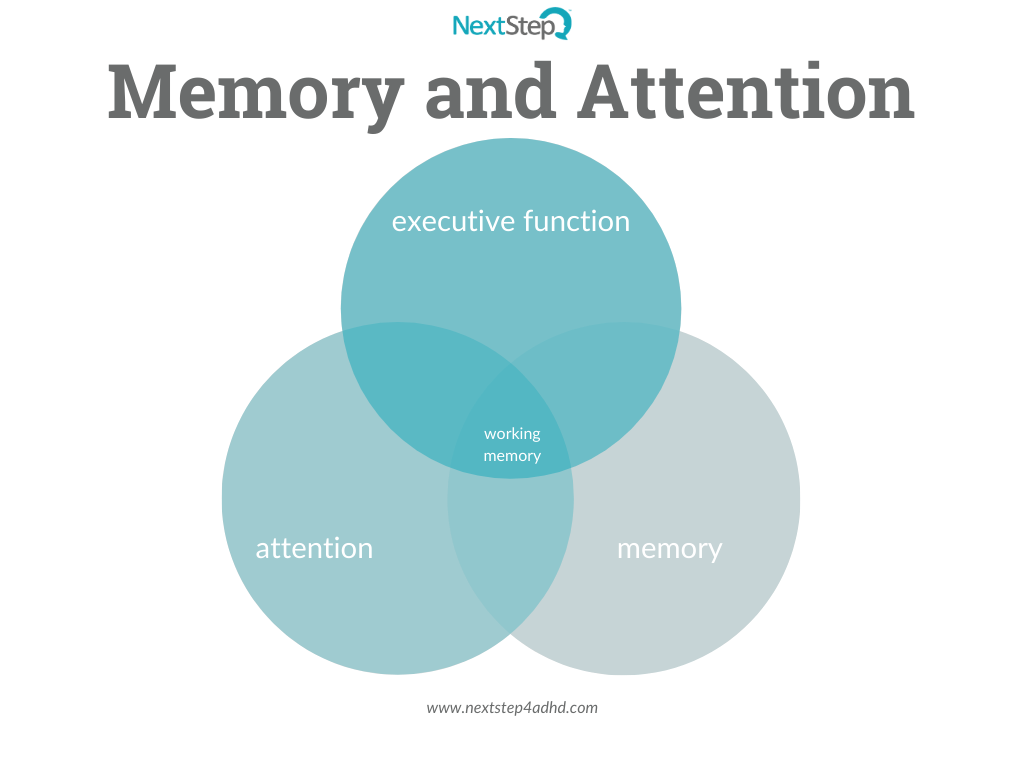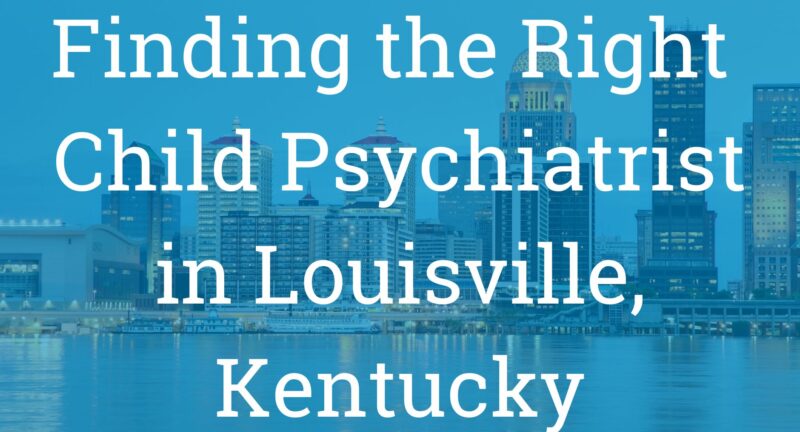
Attention Versus Memory: What’s the Difference?
Are you paying attention?
We are leaving in 10 minutes. Why aren’t you ready? Did you forget you had practice?
Wait, what did you say? I wasn’t paying attention.
Sometimes it seems that ADHD and attention problems go hand in hand, but what does that mean for memory? How does ADHD impact your memory?
We spoke with Dr. Brian Briscoe to get the scoop on ADHD, attention, and memory.
Inattention Is a Common ADHD Symptom…
The Centers for Disease Control and Prevention (CDC) estimate that over 6 million children and 4.4 million adults are diagnosed with ADHD, but the real numbers might be higher if you factor in misdiagnosed or undiagnosed cases. For many of those, difficulty paying attention is a symptom of ADHD.
This isn’t a surprise though. Remember, there are three categories of ADHD symptoms: inattention, hyperactivity, and impulsivity. When it comes to inattention symptoms, you might notice:
- Difficulty paying attention
- Forgetfulness
- Difficulty listening to others
- Problems paying attention with fine details
- Easily distracted
- Poor organizational skills
- Poor time management
Attention Versus Memory
What does attention really mean? Attention means to focus on something (whether that’s an object, a person, or a conversation) and be present. You might listen carefully, inspect something carefully, or think carefully.
Attention isn’t the same thing as memory.
Memory is a process of the brain that allows us to encode, store, retain, and recall information. Information includes data, past experiences, and even smells and songs. Memory is one of the executive function skills.
ADHD and Memory Q & A
Below you can read our interview with Dr. Briscoe.
Q: How many people with ADHD struggle with memory?
Persons with ADHD often describe experiencing difficulties with memory. Common examples include forgetting where one put the car keys, “missing” or forgetting critical details on work assignments or reports, missing deadlines, or forgetting appointments.
When details fall through the cracks, items are misplaced, or tasks/obligations completely forgotten, persons struggling with ADHD (and/or their loved ones) can sometimes feel very upset and frustrated.
ADHD typically does not affect long-term memory — one’s ability to recall memories from childhood, adolescence, and previous years.
However, ADHD does affect:
- Attention
- Working Memory
Q: How does ADHD affect memory?
If you are living with ADHD and experience difficulty with attention, you may have difficulty recording new short-term memories — because attention is not focused enough in order to encode the memory in the first place.
The keys were “lost” because you were distracted at the time you put them down — the brain never had a chance to imprint the memory of where you put them down. An appointment may be missed because your attention is distracted on another activity, and the appointment time slips by without your realizing it.
Q: How does memory work?
“Working memory” is essentially the brain’s short term memory bucket.
As we receive information from the environment (what we see, hear, etc.), we must put it in a temporary spot while we use that information to think about what it means and how to use the information before storing it in our long term memory bucket.
To illustrate how working memory works, consider the following scenario:
- If your boss sits you down to explain a 4-step process to complete a work assignment, the part of your brain responsible for “working memory” holds those four steps in your mind as he explains the details of the assignment.
- As you think through all the details of the assignment, the resources required to complete the processes involved, your working memory should retain the basic 4 steps as the “big picture.”
- Moreover, your working memory should also be working in full force to help you process the details of each step involved.
- As you listen to your boss, you are actively relying on your short-term working memory to recall the “big picture”, understand how the details of each step fit under your bosses’ primary objectives for the project, and analyze all the information as you think through all the various processes involved in completing the project.
Without a working memory, you would not be able to retain any short term memories, and would have to have your boss repeat every sentence — a conversation that would prove very frustrating for both you and your boss.
Without a working memory, you would walk out of the room having no idea what your boss just told you, no understanding of the work that had been assigned to you, and a great deal of difficulty interpreting the sequence of steps involved in completing the assigned project.
Persons with ADHD oftentimes experience some degree of difficulty with working memory. It is not completely absent by any means, but persons with ADHD frequently do experience some degree of impairment with working memory. Some persons experience more impairment than others in this area.
If working memory is impaired, your ability to fully engage in this type of conversation with your boss may be less than you may desire. You may miss important details he considers very important to the project. You may experience difficulty seeing “the forest for the trees”, and you may find it difficult to shift mindset quickly between the details of the project and the bosses’ primary objectives. You may experience difficulty planning out a systematic stepwise approach to completing the project, prioritizing tasks, executing tasks, and/or maintaining consistent effort over time. You may find yourself procrasitinating, missing details, “dropping the ball” and running past deadlines.
You didn’t “forget.” You were not “lazy.” Rather, your working memory is not the same as it is in the average population and it affected your performance.
Q: How can memory be improved?
Studies have consistently demonstrated that ADHD medications improve both working memory and attention.
Coaching and/or therapy for ADHD can also be very helpful. Both therapy and coaching involve learning new strategies and tactics to getting around some of the difficulties you may have with ADHD.
Many people with ADHD are very high performers/achievers — very successful in the workplace. It’s just a matter of learning the right strategies and tactics to account for your weaknesses and build on your strengths.
Your Next Steps
Here at Next Step, we generally recommend comprehensive and holistic treatment approaches that rely on more than medications alone. Our team-based, multidisciplinary approach includes therapy, education, coaching, and more. It’s our goal for our clients to reach their optimal potential in life.
Trying to deal with ADHD on your own can be difficult, but with our innovative approach, you’re never alone. We are here to guide you with your next steps. If you’d like to learn more about us or set up a confidential discussion with one of our professionals, you can complete this form for a virtual appointment. Alternatively, call our Louisville, Kentucky office at (502) 907-5908.
About Dr. Briscoe
 Dr. Brian Briscoe is a board-certified psychiatrist and the medical director of adult programs at Next Step 4 ADHD. Dr. Briscoe was voted a “Top Doctor” by Louisville Magazine. You can make an appointment with Dr. Briscoe here.
Dr. Brian Briscoe is a board-certified psychiatrist and the medical director of adult programs at Next Step 4 ADHD. Dr. Briscoe was voted a “Top Doctor” by Louisville Magazine. You can make an appointment with Dr. Briscoe here.
References:
https://www.cdc.gov/ncbddd/adhd/data.html
Related Posts
Finding the Right Support: Child Psychiatrist in Louisville, Kentucky
November 20, 2023
Parenting a child with ADHD can be both rewarding and challenging......
Holistic ADHD Treatment: What Does That Mean?
June 15, 2022
Around 6.4 million American children and teens live with attention deficit...



